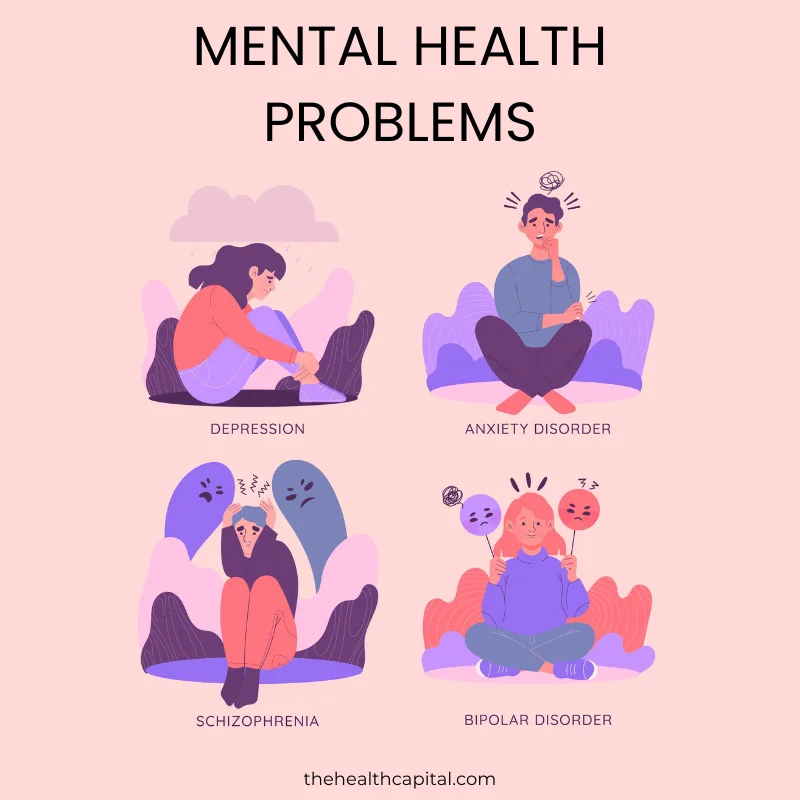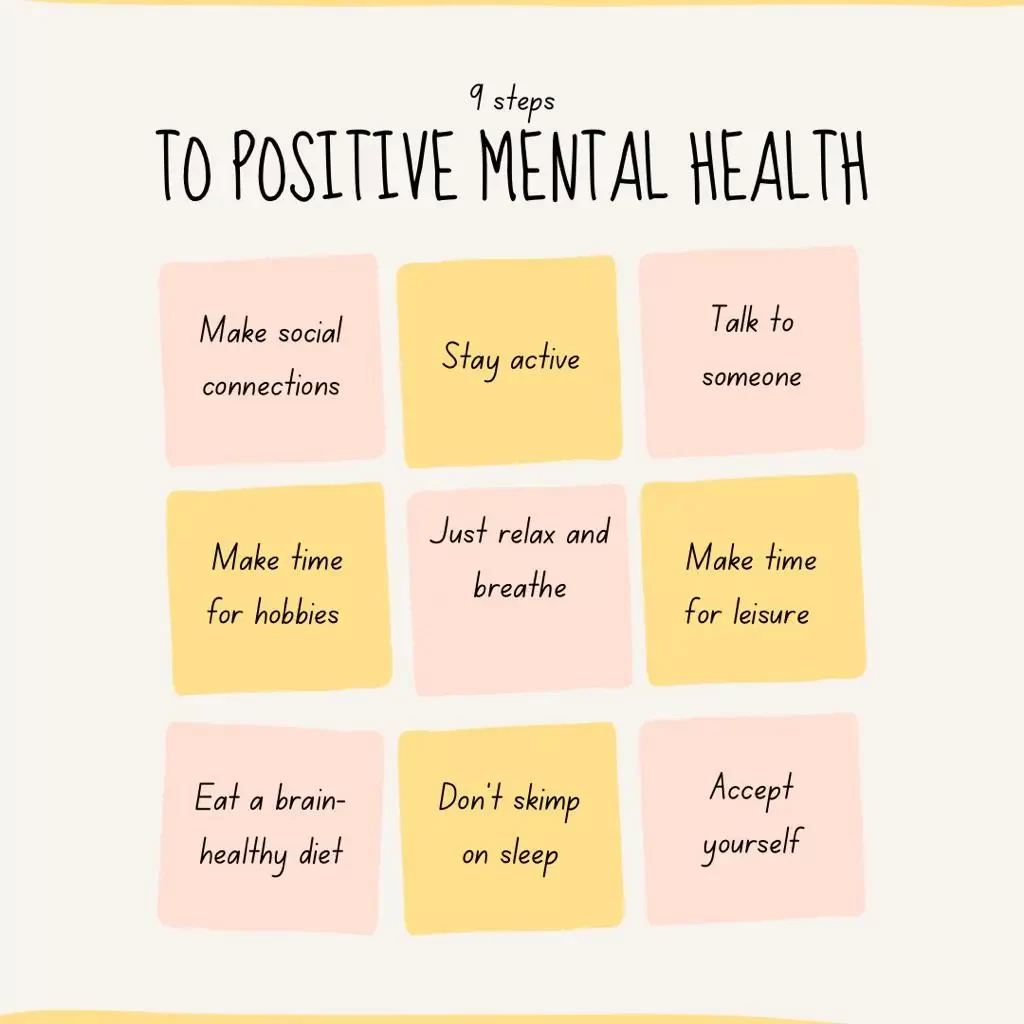Around one in eight people in the world face mental issues. This essentially means that someone you’ve known for years could be struggling with their mental and you would know nothing about it. Women and mental health are two words you don’t often hear together. But anxiety and depression are strongly related to the female gender and around one in five women suffer from the same.
Women play multiple roles in society, such as childbearing, looking after their family, looking after sick relatives, and holding down a job. These roles lead to considerable stress in their lives. The pressure on them to bear children and the failure to give birth to a male child, along with the shame that comes with it are some of the reasons why a large number of women are mentally affected. In addition, events like pregnancy, the postpartum period, and menopause result in various mental health problems as well.
Acknowledging the Presence of Mental-Related Issues in our Lives
Mental health is a sensitive topic that people are often afraid to address it. They don’t know much about it and instead choose to brush it under the carpet. But it is so important to better understand the various mental-related issues prevalent in our society so that we can help those suffering from them.
Most of the time, people don’t accept that they are suffering from a mental disorder because they think it’s ‘all in their head’. They don’t understand enough about the issues they are facing, so they choose to believe they are making it all up, and that it’s nothing to be concerned about. But the more you push aside your mental issues, the worse it becomes. It’s very important to educate people about when feelings and behaviour require medical attention. People will be encouraged to get the help they need when they better understand what they are going through.
Another reason why mental disorders are not talked about is that society puts so much pressure on people to be perfect, that they think suffering from a mental issue will be their downfall. They think people will look at and treat them differently, so instead, they put on a smile and try to bottle everything up. But the truth is almost a billion people worldwide suffer from mental problems. That’s the reality and the only way to change that is by first accepting it and then taking the steps to overcome it.
As a result of Covid-19, the world is facing a pandemic of mental health problems either caused or exacerbated by the coronavirus situation. As a result, many people, particularly young celebrities, influencers, and private individuals, have begun to speak up about their mental health issues, releasing videos and posts about their experiences, panic attacks, depressive episodes, recoveries, and so on social media. This encourages many people to accept their mental disorders and seek help because they understand that they are not alone and that others are going through the same situation.

Mental Health Conditions in Women
Gender plays a significant role in mental health conditions. Women’s patterns of psychological discomfort and mental disorder differ from those observed in men. Gender differences occur particularly in common mental disorders wherein women predominate. Studies have shown that women are three times more likely than men to experience depression in response to stressful events.
Women and mental health aren’t given much importance but several factors contribute to increased vulnerability to mental health disorders in women:
- Trauma experienced by women such as childhood sexual abuse, adult sexual assault, and intimate partner violence has been consistently linked to higher rates of depression in women, as well as to other psychiatric conditions.
- Poverty among women has been steadily increasing. Women in poverty find it difficult to get access to healthcare facilities and the treatment they need, thus increasing mental disorders.
- Women in the perinatal period can experience anxiety, and psychotic disorders ranging in severity from mild depressive symptoms to major depressive episodes, to post-partum psychosis. Risk factors like anxiety, depression, and stress in pregnancy can result in adverse outcomes for mothers and children.
- Gender disadvantage and discrimination play a role as well. Not a lot of importance is given to women’s health, especially mental health conditions. Many a time, women are viewed as overdramatic and making a big deal over small issues. So, when they experience mental health issues like anxiety or depression, they are often not taken seriously. They are not able to get the help they need as they don’t know who to reach out to and people often tell them they are just overthinking things, instead of trying to help them.
- Self-esteem and body image issues also contribute to mental problems. Social media plays a significant role in our lives. The images and videos people share of their seemingly ‘perfect’ lives tend to make the lives of others dull in comparison. They may feel some sort of pressure to live up to these high expectations, and if they don’t it can adversely impact them mentally. The images shared on social media of women’s bodies portray elegance and perfection, without any blemishes or scars, or weight issues. This can make other women feel less about themselves as they may think they aren’t beautiful and have too many flaws. This can play on their minds and cause mental issues like depression or anxiety.
What Needs to be Done
Encouraging conversation about mental health is the first important step. You shouldn’t be afraid to start a discussion with someone about mental-related health issues. Someone you love may be going through this on their own and need to know you’re there for them. Mental disorders can be treated and by understanding and accepting these problems and showing compassion, we can improve and perhaps even save lives.
It’s also important to understand when you need help. For example, it’s normal to be anxious in stressful situations like job interviews or exams, but getting panic attacks or anxiety attacks all of a sudden in the form of shortness of breath, palpitations, dizziness, etc., is an underlying sign of anxiety disorder. So, when you experience something you don’t understand, it’s important not to brush it off but seek professional help from those who understand what you’re going through. Remember you’re not alone, what you are experiencing may be new to you, but it’s something millions of people are going through as well. So take heart, you will get through this.
It’s time to break the stigma of mental health issues and focus on creating a world in which everyone is accepted, irrespective of the kind of health conditions they are facing. People must be treated equally and be able to get access to the healthcare facilities they need irrespective of their gender. Women’s health problems and solutions must be brought to the forefront and we must take the right steps to achieve that. As more and more people are accepting their mental-related problems and being vocal about them, we can be optimistic that stigma-related barriers won’t last forever.

The Health Capital is here to take that first step. This platform was created to connect women with the best doctors, and to make women’s health problems and solutions a priority. For years women and mental health have not been addressed in the same sentence. Even talking about it was regarded as shameful and uncomfortable. We at The Health Capital are here to change that perspective. We put women and their health first and are here to lend an ear to any problems you may be facing irrespective of whether they are mental, reproductive, sexual, hormonal, or lifestyle-related.
We want you to better understand the health problems you’re going through, so we’ve curated a number of free health analysis tests ranging from stress tests to personality disorder tests that will give you an idea of where you stand. Through effective homoeopathic treatment, counselling, and the right advice we seek to help you overcome your health problems, and set you on a path to healthy living.
FAQs
1. What causes mental problems?
Challenges or problems with your mental health can arise from psychological, biological, and social issues as well as life events.
2. Is there a cure for mental disorders?
Firstly it’s important to understand the kind of mental health problem you are facing, so you can find out what helps. Talking, counselling, friendship, medication, exercise, good sleep, nutrition, and meaningful occupation can help.
3. Where can I find out more about women’s health problems and solutions?
The Health Capital has a blog dedicated to educating women on various health problems that are mental, sexual, reproductive, hormonal or lifestyle-related. It also provides online consultations with the best doctors to provide you with the counselling and treatment you need for a happy and healthy life.
4. How do I know if I have a mental disorder?
If your beliefs, thoughts, feelings, or behaviours have a significant impact on your ability to function in what might be considered a normal or ordinary way, it would be important to seek help.
5. What should I do if I’m worried about a friend or relative?
This may depend on your relationship with them. Gently encouraging someone to seek appropriate support would be helpful to start with.

